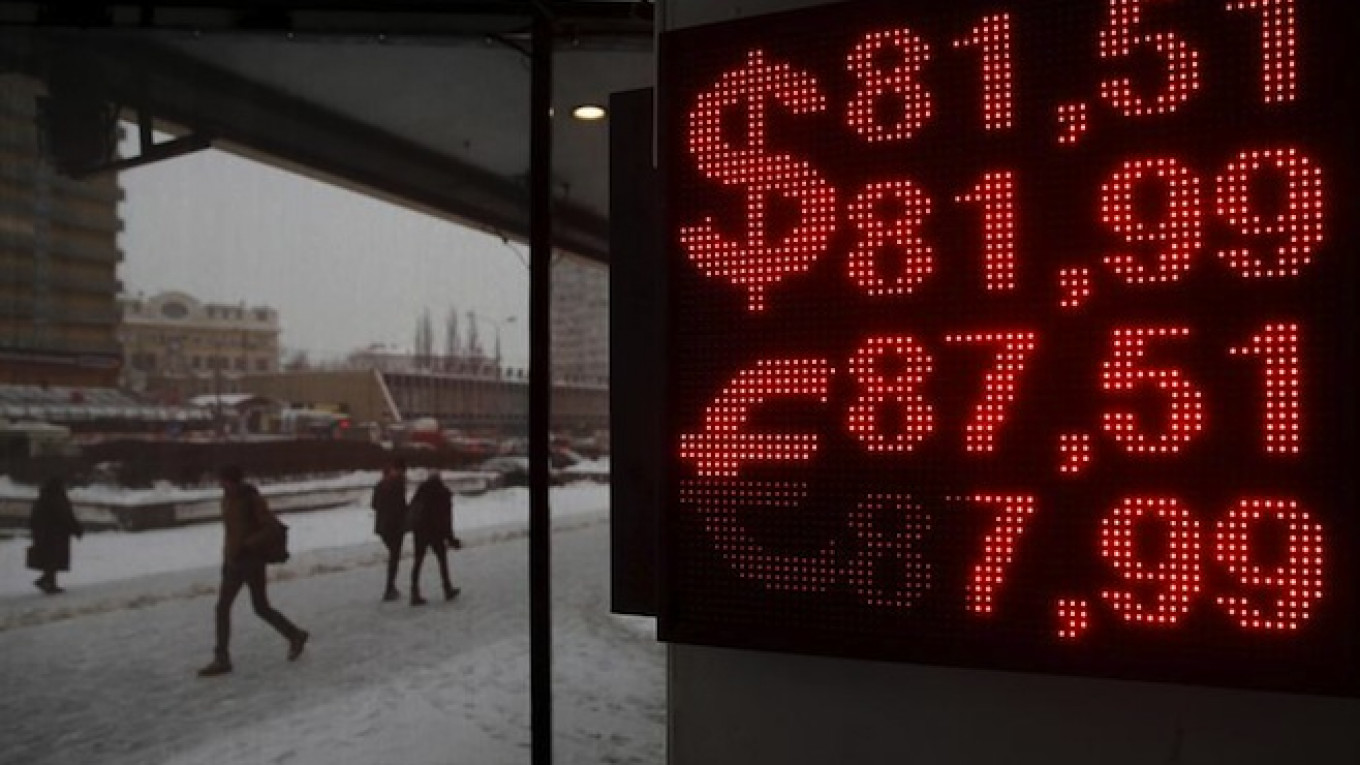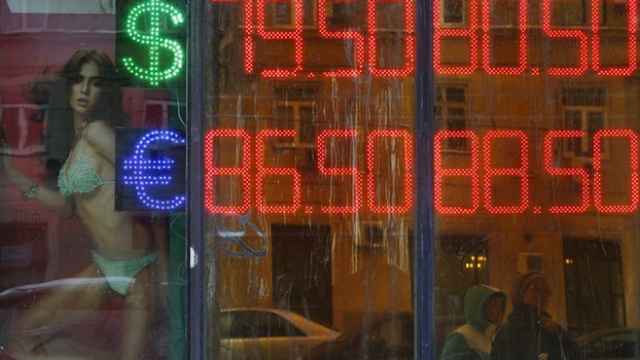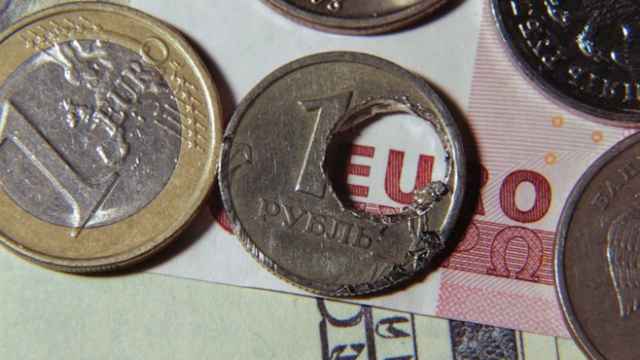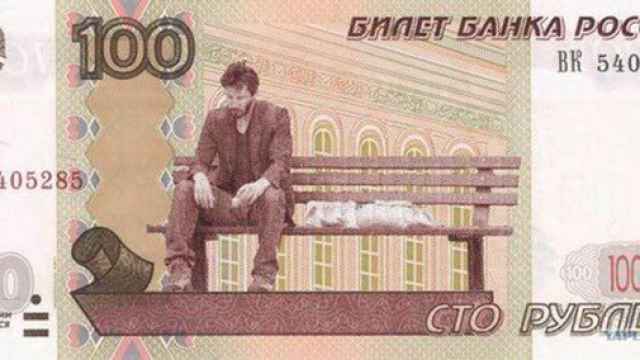A rebound in global oil prices on Friday helped lift the Russian ruble from record lows reached earlier in the week, easing fears of a downward spiral for the currency.
Around 1 p.m., the ruble had strengthened 3.3 percent to 79.9 against the dollar and 3.6 percent to 86.7 against the euro, as the price of Brent oil rose back above $30 per barrel. Russia is the world's largest energy exporter.
Only hours earlier, on Thursday, the ruble struck 85.9 to the dollar — its lowest since a redenomination in 1998. The currency is still around 9 percent weaker against the dollar than at the start of January. The weaker ruble fuels inflation will keep interest rates higher for longer, hampering economic growth.
Friday's strengthening eases pressure on the Central Bank, which according to Russian media called an emergency meeting on Thursday evening following days of steep ruble falls. The bank's chief Elvira Nabiullina on Thursday canceled a trip to the World Economic Forum in Davos, the RBC news agency reported.
When the ruble reached similar levels against the dollar in 2014, the bank at a midnight gathering hiked interest rates by 6.5 percent to stem a run on the currency, panic buying of hard currency by Russians and fears of meltdown in the financial sector.
This time around, banks and people appear to have adjusted and there has been little sign of panic. Kremlin spokesman Dmitry Peskov said Thursday the exchange rate was “volatile, but nowhere near collapse,” while Nabiullina has said the currency is close to its “fundamental levels.”
Stocks also rallied on Friday, with the dollar-denominated RTS up 5.2 percent at 665 points and the ruble-traded MICEX up 0.5 percent at 1,686 points. Both indexes are down sharply since early January.
The ruble's fall has followed that of oil, which has slumped from more than $100 per barrel in summer 2014, pushing Russia into recession. The economy contracting by an estimated 3.7 percent last year.
A Message from The Moscow Times:
Dear readers,
We are facing unprecedented challenges. Russia's Prosecutor General's Office has designated The Moscow Times as an "undesirable" organization, criminalizing our work and putting our staff at risk of prosecution. This follows our earlier unjust labeling as a "foreign agent."
These actions are direct attempts to silence independent journalism in Russia. The authorities claim our work "discredits the decisions of the Russian leadership." We see things differently: we strive to provide accurate, unbiased reporting on Russia.
We, the journalists of The Moscow Times, refuse to be silenced. But to continue our work, we need your help.
Your support, no matter how small, makes a world of difference. If you can, please support us monthly starting from just $2. It's quick to set up, and every contribution makes a significant impact.
By supporting The Moscow Times, you're defending open, independent journalism in the face of repression. Thank you for standing with us.
Remind me later.






